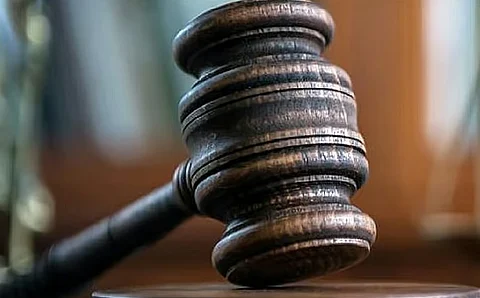

The National Green Tribunal (NGT) has directed the Department of Transport, National Capital Territory of Delhi, to pay environmental compensation of Rs 95,05,000 as an interim measure for illegal cutting of trees/non-carrying out compensatory plantation in the process of setting up a driving training institute.
The amount has to be deposited by the Department with the Delhi Pollution Control Committee (DPCC).
The DPCC has been directed to compute final environmental compensation within a period of three months. The amount of interim environmental compensation should be utilised for remediation of the damaged environment in accordance with the environment remediation plan. The plan should be prepared by a Joint Committee comprising the Central Pollution Control Board (CPCB), DPCC, Principal Chief Conservator of Forest, Government of National Capital Territory of Delhi. The plan has to be prepared within three months and executed in the next three months, according to the NGT order dated March 21, 2025.
Significantly, the bench of Justice Sudhir Agarwal observed that “almost all State Pollution Control Boards or Pollution Control Committees have refrained from computing and assessing any environmental compensation due to illegal cutting of trees despite having caused serious damage to the environment only on the pretext that no methodology or guideline has been provided for computation of environmental compensation for illegal cutting of trees”.
Whenever law requires something to be done, the same must be done in accordance with the provisions if made and if not made, by working out reasonable guidelines in this regard since such power of issuing directions is conferred upon statutory regulators, Justice Sudhir Agarwal added.
The NGT directed copy of the judgment to be forwarded to all the Chief Secretaries of states and Union Territories; Member Secretaries of State Pollution Control Boards and Pollution Control Committees; Additional Chief Secretaries/Principal Secretaries, Environment and Forest of all the states and Union Territories; Director General (Forest), Union Ministry of Environment, Forest and Climate Change (MoEF&CC), New Delhi; Member Secretary, CPCB and Secretary, MoEF&CC for information and compliance.
The NGT directed the district magistrate of Mainpuri in Uttar Pradesh on March 20, 2025, to file a reply about the issue of encroachment on the banks of Ishan river, a tributary of the Ganga.
The applicant, Ajay Pratap Singh, also raised the issue of preservation of Rohtam lake. The plea of the applicant was that the banks of the Ishan have been encroached upon on both sides at Mainpuri and Etah by school buildings, commercial establishments and illegal colonies. The construction process is ongoing, the application said.
The applicant has further alleged that the main drain of Mainpuri city, flowing along the hostel road, falls into the Ishan river near St. Mary’s School. It discharges the black and grey water from the city’s residential area into the river.
The next hearing of the case is scheduled for July 17, 2025.
Water quality of waterbodies in Bhaderwah, Doda district, Jammu & Kashmir is being monitored closely, the status report filed by the deputy commissioner / district magistrate of Doda on March 24, 2025 before the NGT noted.
Water samples are being tested on a periodic basis and all the samples (except that of Puneja Nallah wherein Biochemical Oxygen Demand (BOD) value has been found to be 3.3 against 3, along with a slightly pungent smell) have been found conforming to specifications.
The report added that BOD value will improve once a bio-effluent treatment plant is installed at the local slaughterhouse.
The action plan had identified 1.68 million litres per day of sewerage and septage generated by households for treatment.
It also found that wastewater from rural areas was getting drained in water bodies without any treatment. Further, there were insufficient soakage pits in rural areas and waste from local slaughterhouses was getting directly discharged into waterbodies.
The treatment plant installed in the sub district hospital of Bhaderwah is not operational.
Untreated waste was lying in the open near the dumping site at the materials recovery facility (MRF) of Dranga Bhaderwah. The capacity of the landfill is on the verge of getting exhausted. These were some of the problems identified in the action plan.